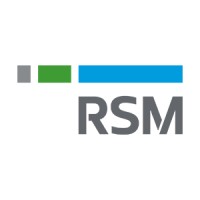As a career consultant, I’ve heard just about every nightmare interview story you can imagine. Tears have been shed in my office as tales of regret and doubt unfold recounting moments of anxiety, brain freezes and frustration over failed interviews.
It’s true; the interview process can be intimidating and nerve wracking, but it doesn’t have to be…if you can tell a good story.
All jobs require one thing: that you can solve a certain problem. Employers are going to pay you for your ability to help them with their problems or challenges, such as how to build a new product, how to sell a service or how to market their great idea to the world.
All good stories have this in common: They connect with you in an emotional way and show you how a challenge or problem was resolved.
If you can tell an employer stories about how you’ve overcome challenges or how you’ve used your skills and experiences to solve some problems, you’ll capture their attention and become the memorable candidate that stands out from the crowd.
So, how do you tell your story?
1. Know yourself (you are the hero of the story)
Do you know what your top strengths are? Do you know what problems you like to solve? Have you ever failed? What did you learn from that? As the main character, you need to know your strengths and weaknesses. Take time to not only define these things, but also to ask for input from trusted friends, family or colleagues.
For example, you may notice that you are great at helping people figure out new technology. Now ask your trusted network for examples: “Can you think of a time that I used my technical skills to help you?” “What problems do you think I’m good at solving?” “Can you tell me about a time that you were impressed with my talents and why?”
These examples can help you develop a context to show the employer how you’ve solved problems and the benefits others have gained from your work.
2. The best storytellers prepare and practice
“Storytellers learn their stories in many different ways. Some read or listen to a story over and over. Some meditate on it. Some type or write out the story. Some draw charts. Some begin telling the story at once. However you do it, you must absorb the story until it becomes second nature. Find the best way for you.” —Aaron Shepard, author and storyteller
While you don’t want to memorize a script and sound like a robot during your interview, you do want to have some stories and examples prepared for common questions. Here’s the great thing about preparing stories for a job interview–the employer has already told you what kind of stories he wants to hear through the job description.
Dissect the job description and highlight the main duties and responsibilities. These are the problems that the employer needs solved. Now, think of examples of when you actually solved these types of problems and organize these examples (stories) in the following way:
Problem: What problem or challenge did you have to solve that was similar to what’s outlined in the job description?
Action: What actions did you take to solve the problem? Here’s where you’ll highlight your skills that are relevant to the position.
Results: What were the outcomes, how did things improve or what were the lessons learned? This is where you show how you’ve made an impact and that you can do the same for them.
If you pick your top three strengths as they relate to a position and organize stories of how you used these strengths through the Problem, Action, Result method, you’ll be prepared to answer most interview questions. Most of your stories will outline more than one skill and exemplify several positive outcomes such as your ability to analyze and solve a complex problem, successfully communicate ideas to others, work on a team, take initiative, bounce back from a failure, etc.
3. Be genuine (this is a nonfiction)
Don’t lie or make up stories about yourself. You don’t have to slay dragons to make an impression; the employer just wants to get to know who you are and your unique approach to work, to problem solving or to the industry.
Also, the key to a good story is connecting with someone emotionally. You want your audience to care about what happens to the main character (you!) or to become invested in the outcome of the story. This means making good eye contact, using proper tone and nonverbal expressions (nodding or smiling as appropriate) and expressing confidence as you tell your story.
The happy ending
Taking some time to think about your interview as a chance to tell a good story can not only lead to a happy ending (you get the job or internship!) but can make the process less stressful and actually enjoyable. Who doesn’t love a good story?! And you definitely have one to tell.






